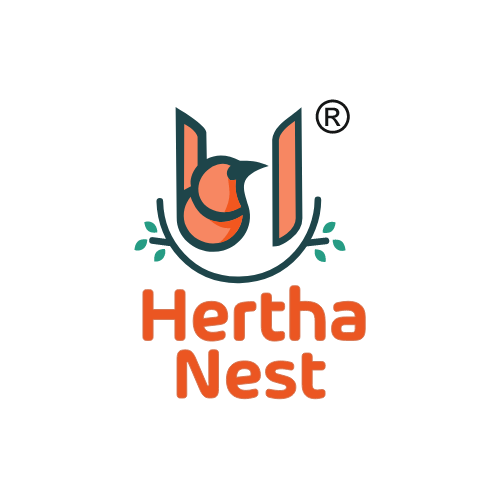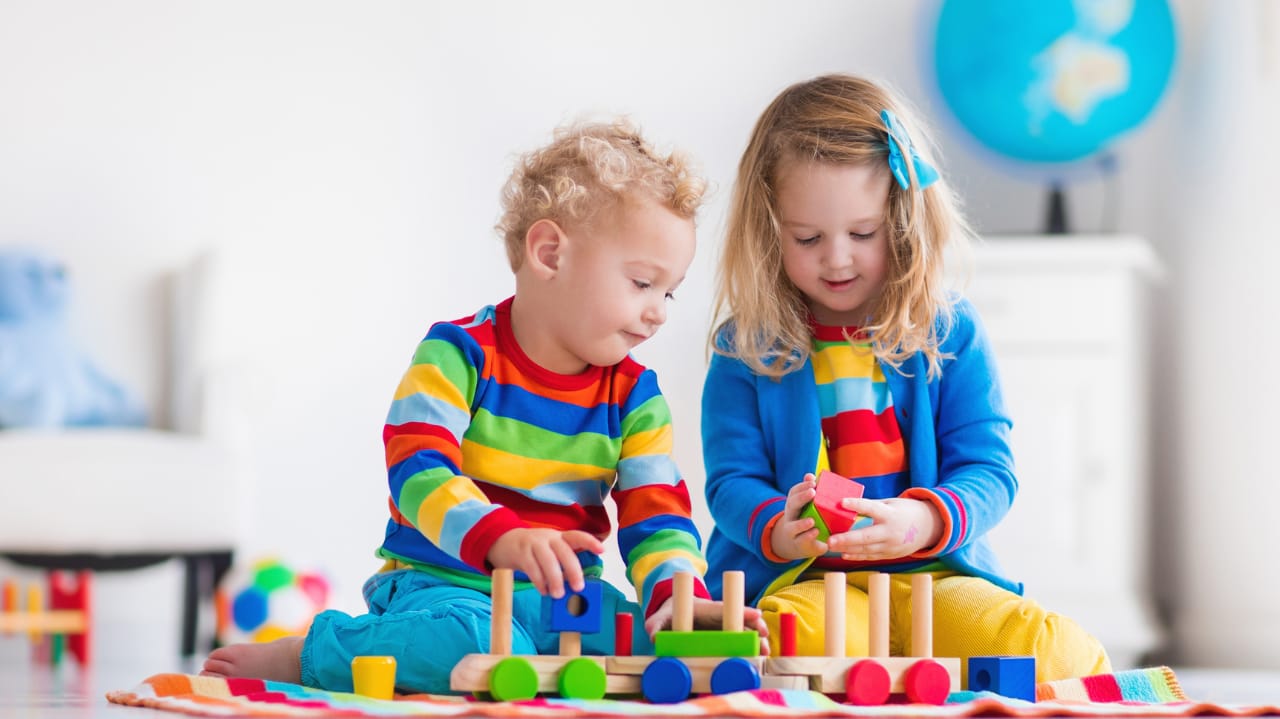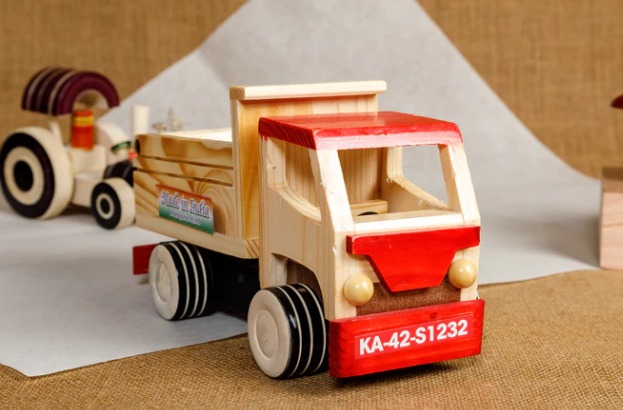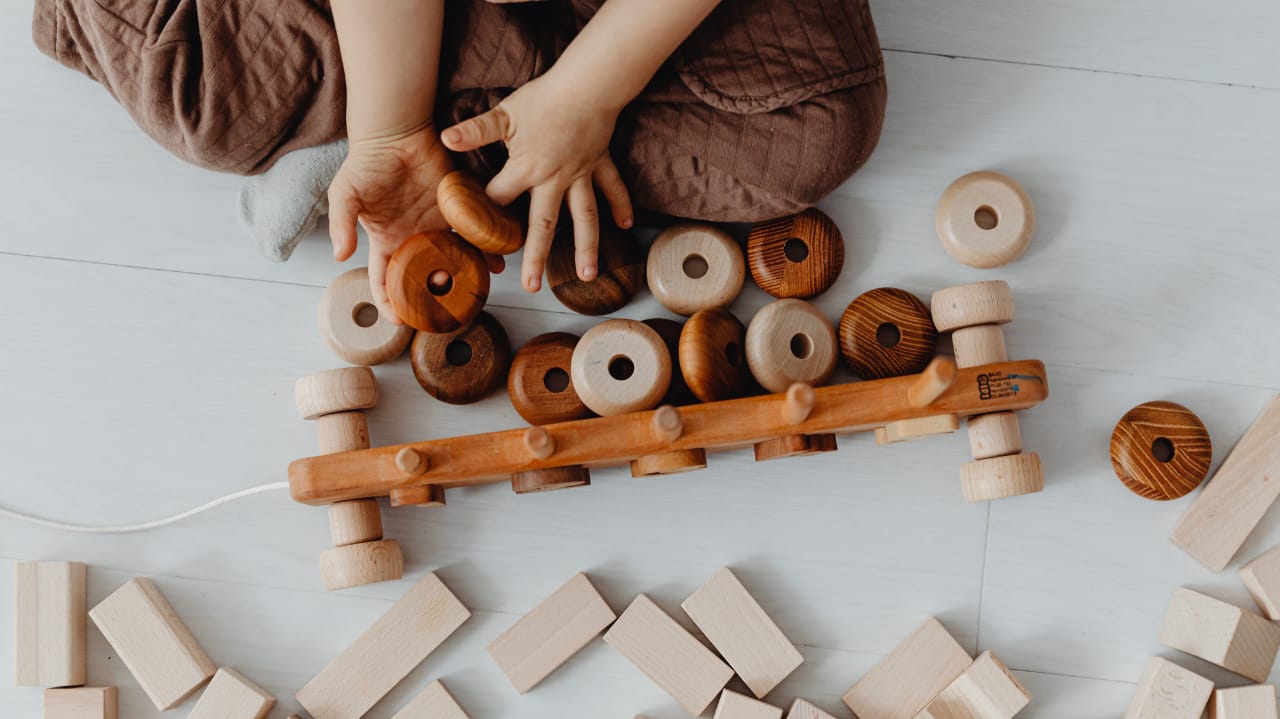Wooden toys are more than just nostalgic relics; they are valuable tools for childhood development. Incorporating wooden toys into play is beneficial for children from infancy through their early schooling years. In this blog, we explore the key benefits of wooden toys and why they are a superior choice for supporting early childhood development.
Enhancing Motor Skills
Fine Motor Development:
Wooden toys often require children to manipulate small parts, whether fitting a wooden puzzle piece into its slot or stacking blocks. This fine motor control is crucial for writing, tying shoes, and other precision tasks as they grow.
Gross Motor Skills:
Larger wooden toys, like pull-alongs or push carts, help toddlers develop gross motor skills and balance as they walk or run while playing.
Boosting Cognitive Abilities
Problem Solving:
Wooden puzzles and building blocks challenge children to solve problems, whether it’s figuring out which piece fits or how to balance a structure. These activities enhance cognitive flexibility and improve critical thinking skills.
Shape and Color Recognition:
Many wooden toys are painted in bright colors and shaped like letters, numbers, or familiar objects. They offer a tactile way to learn new concepts and distinguish different shapes and colors, which are foundational skills in early education.
Encouraging Creativity and Imagination
Open-Ended Play:
Wooden toys often do not come with a set of instructions, which encourages children to use their imagination. A block can be a car, a phone, or part of a castle, depending on the day and the child’s imagination.
Role-Playing Scenarios:
Sets like wooden kitchens, dollhouses, and tool kits allow children to mimic adult behaviors, which is critical for social development and understanding the world around them.
Promoting Durability and Safety
Long-Lasting:
Wooden toys are durable and can withstand rough handling, making them a long-term investment in a child’s developmental journey. They are less likely to break or wear down, unlike many plastic toys.
Non-Toxic Materials:
High-quality wooden toys are often made from natural materials and coated with non-toxic paints, making them a safer choice for young children who tend to put objects in their mouths.
Supporting Sustainable Play
Eco-Friendly:
Wood is a sustainable resource, especially when sourced from managed forests. Choosing wooden toys is an environmentally friendly option compared to plastic toys, which are often non-recyclable and made from chemicals.
Energy Efficient:
The manufacturing process for wooden toys generally uses less energy and produces fewer emissions than that for plastic toys, contributing to a lower overall environmental impact.
FAQs
Are wooden toys better than plastic toys?
Yes, in many ways. Wooden toys are typically safer, more durable, environmentally friendly, and offer a range of developmental benefits through sensory-rich and imaginative play.
How do I choose the best wooden toys for my child?
Look for toys made from high-quality, sustainable wood and non-toxic finishes. Choose toys appropriate for your child’s age and developmental stage, focusing on those that will challenge and engage them creatively and cognitively.
Can wooden toys be cleaned and sanitized?
Absolutely. Wooden toys can be wiped down with a damp cloth and mild soap. For disinfecting, use a vinegar-water solution. It’s important to let the toys dry completely before the next play session to prevent mold growth.
Do wooden toys hold children’s attention in the digital age?
Yes, despite the prevalence of digital devices, many children are drawn to the tactile nature and simplicity of wooden toys. They often cater to fundamental play instincts, which remain relevant regardless of technological advancements.
Where can I buy quality wooden toys?
Many toy stores, online marketplaces, and specialty stores offer a range of wooden toys. Look for brands that prioritize sustainability and child safety in their manufacturing practices.
Wooden toys are not just traditional; they are essential tools for childhood development. They offer a natural, safe, and creative play experience that can greatly benefit early learning and development. Their timeless appeal and robust nature make them a staple in children’s toy boxes around the world.




